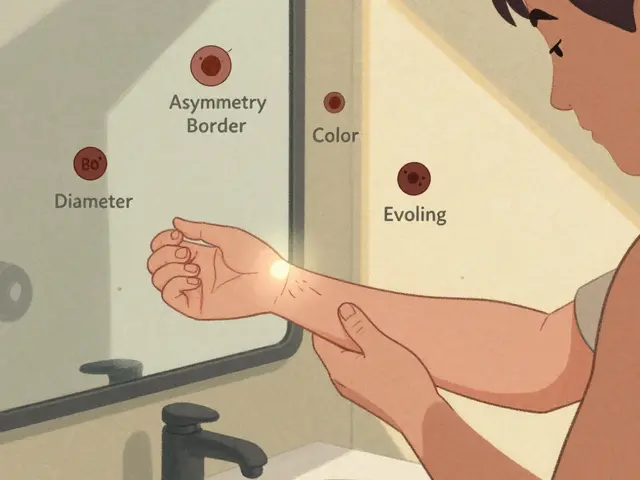Lupus Treatment: What Works, What Doesn’t, and What You Need to Know
When you’re living with systemic lupus erythematosus, a chronic autoimmune disease where the body attacks its own tissues. Also known as lupus, it can affect your skin, joints, kidneys, heart, and even your brain. There’s no cure, but treatment can stop flares, reduce damage, and help you live well. The goal isn’t to eliminate lupus—it’s to control it so it doesn’t control you.
Lupus treatment isn’t one-size-fits-all. What works for one person might do nothing—or cause side effects—for another. hydroxychloroquine, an antimalarial drug repurposed as a cornerstone lupus medication. Also known as Plaquenil, it helps calm the immune system, reduces flares, and may even protect organs over time. Most people with lupus take it long-term, even when they feel fine. Then there are immunosuppressants, drugs that dampen the overactive immune response. Also known as steroid-sparing agents, they include azathioprine, mycophenolate, and cyclophosphamide—used when lupus hits the kidneys, lungs, or nervous system. These aren’t taken lightly. They weaken your defenses, so infections become a real risk. But for severe cases, they’re life-saving.
Not everything is a pill. sun exposure, a major trigger for lupus flares. Also known as UV light sensitivity, it can spark rashes, fatigue, and joint pain. Wearing sunscreen daily—even indoors near windows—isn’t optional. Diet matters too. Some people find that cutting out processed foods, sugar, or nightshades helps. Others benefit from omega-3s or vitamin D. No magic bullet, but small changes add up. And stress? It’s a known trigger. Managing it through sleep, gentle movement, or therapy isn’t "nice to have"—it’s part of treatment.
What you won’t find in these articles are miracle cures or unproven supplements sold as "lupus fixers." What you will find are real comparisons: how hydroxychloroquine stacks up against newer biologics, why some people need steroids while others don’t, how kidney involvement changes the game, and what side effects actually matter in daily life. You’ll see how people manage fatigue without quitting work, how to spot a flare before it hits hard, and why skipping your meds because you "feel fine" is one of the biggest mistakes you can make.

- Oct 29, 2025
- Posted by Cillian Osterfield
How Azathioprine Works in Lupus Treatment: A Clear Guide
Azathioprine is a proven, affordable immunosuppressant used to control lupus flares and reduce steroid dependence. It works slowly but effectively, making it a long-term staple for many patients, especially those with kidney involvement or planning pregnancy.
Categories
- Health and Wellness (72)
- Medications (72)
- Health and Medicine (28)
- Pharmacy Services (12)
- Mental Health (9)
- Health and Career (2)
- Medical Research (2)
- Business and Finance (2)
- Health Information (2)
Latest Posts
©2026 heydoctor.su. All rights reserved




